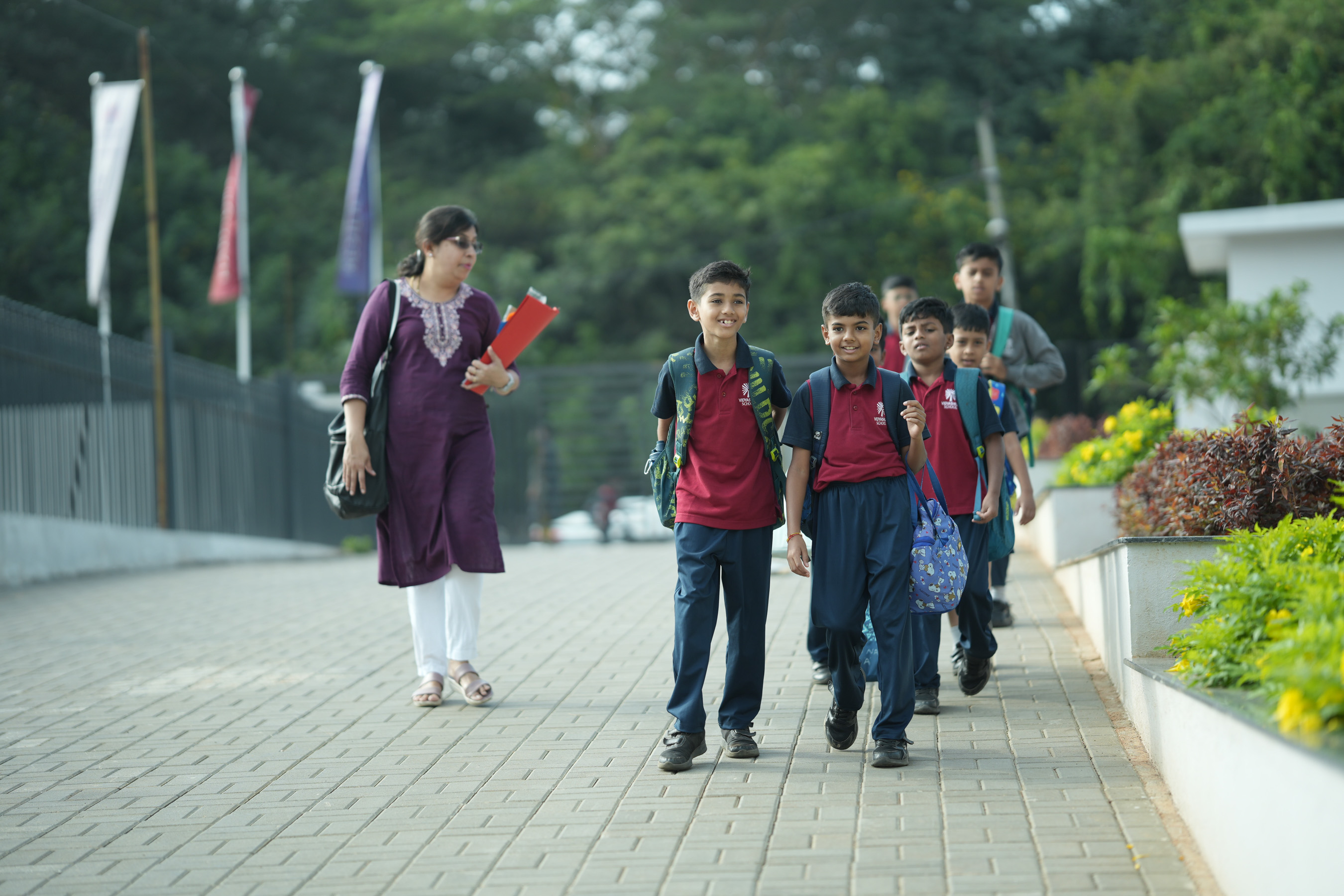When selecting the best educational path for your child, one of the key decisions parents need to make is choosing the right curriculum. At Vidyashilp School,Banashankari we offer the ICSE (Indian Certificate of Secondary Education) curriculum, but many parents often ask about the differences between ICSE and CBSE (Central Board of Secondary Education). Understanding these differences can help you make an informed decision about your child’s academic future.
Here’s a detailed comparison between the ICSE and CBSE curriculums to guide you through the key distinctions.
1. Focus of Curriculum
ICSE (Offered at Vidyashilp School, Banashankari):
Balanced Approach: The ICSE curriculum is known for its comprehensive and balanced approach, giving equal importance to subjects like science, arts, languages, and humanities.
Emphasis on Language: ICSE places strong emphasis on English language proficiency, offering a detailed and thorough approach to reading, writing, and comprehension.
Practical Learning: The curriculum encourages analytical thinking, research projects, and experiential learning, ensuring students apply theoretical concepts in practical scenarios.
CBSE:
Academic-Heavy: CBSE is more focused on subjects like science and mathematics, which makes it ideal for students aiming for careers in engineering or medical fields.
National Orientation: It is more oriented toward preparing students for national-level entrance exams such as JEE and NEET.
Standardized Learning: The curriculum is more structured and compact, emphasizing rote learning for certain subjects over extensive research and practical exploration.
2. Breadth of Subjects
ICSE (Vidyashilp School,):
Offers a wide range of subjects that go beyond the core academic ones. Students are encouraged to explore subjects like environmental science, computer applications, and performing arts. Greater freedom to choose subjects in higher classes, allowing students to customize their education based on their interests and future goals.
CBSE:
Offers a fixed curriculum with fewer elective subjects, focusing more on core subjects such as science, mathematics, and social studies.
Less emphasis on subjects like arts and humanities compared to ICSE.
3. Assessment Style
ICSE (Vidyashilp School):
Application-Oriented Assessments: ICSE evaluations focus on testing the conceptual understanding of students through projects, assignments, and written exams.
Detailed Marking Scheme: ICSE examinations emphasize detailed written answers and in-depth knowledge, making the assessment process rigorous and extensive.
CBSE:
Objective-Based Assessments:CBSE has a more objective-oriented approach, with exams designed to test a student’s knowledge of facts and their ability to recall information quickly.
Multiple Choice Testing: CBSE exams, particularly in senior classes, lean towards testing through multiple-choice questions (MCQs) which helps students prepare for competitive exams.
4. Global Recognition
ICSE (Vidyashilp School):
International Acceptance: The ICSE certificate is widely recognized by international universities, making it an excellent choice for students who plan to pursue higher education abroad. The curriculum is known for its focus on language and literature, which is highly valued by global educational institutions.
CBSE:
National Focus: CBSE is well-recognized in India and is particularly suited for students looking to continue their education in Indian universities.
While it has some international recognition, it is more commonly accepted in India and is closely linked with entrance exams for Indian institutions.
5. Suitability for Competitive Exams
ICSE (Vidyashilp School):
While ICSE students can excel in competitive exams, the curriculum’s broader scope means students may need additional preparation for exams like JEE and NEET, which are more aligned with the CBSE curriculum.
CBSE:
CBSE’s curriculum is highly structured around preparing students for national competitive exams like JEE (Engineering) and NEET (Medical). Students focusing on these exams often find CBSE more directly aligned with the entrance test syllabi.
6. Learning Style and Flexibility
ICSE (Vidyashilp School):
Holistic Learning: The ICSE board encourages holistic development by balancing academic rigor with creative and extracurricular activities.
Critical Thinking: The curriculum is designed to foster analytical thinking, encouraging students to question and research beyond the textbook.
CBSE:
Structured Learning: CBSE is more traditional in its approach, with a strong emphasis on completing the syllabus efficiently and focusing on key academic subjects.
Less Flexibility: The learning process can be more standardized, leaving less room for creative exploration compared to ICSE.
Conclusion:
Why ICSE at Vidyashilp School ?
At Vidyashilp School, the ICSE curriculum is designed to cater to students who wish to explore a well-rounded, comprehensive approach to education. Our emphasis on experiential learning, critical thinking, and a broad range of subjects ensures that students are not just academically prepared but also equipped with life skills that are essential for future success.
ICSE is particularly suited for students who value in-depth learning, enjoy a mix of theory and practical application, and plan to pursue higher education abroad. Vidyashilp School’s infrastructure, highly qualified faculty, and holistic approach make it one of the top choices for parents seeking an ICSE education in Bangalore. While CBSE may be ideal for students with specific academic goals focused on competitive exams, ICSE offers a more diverse and globally recognized education, which nurtures a lifelong love for learning.

